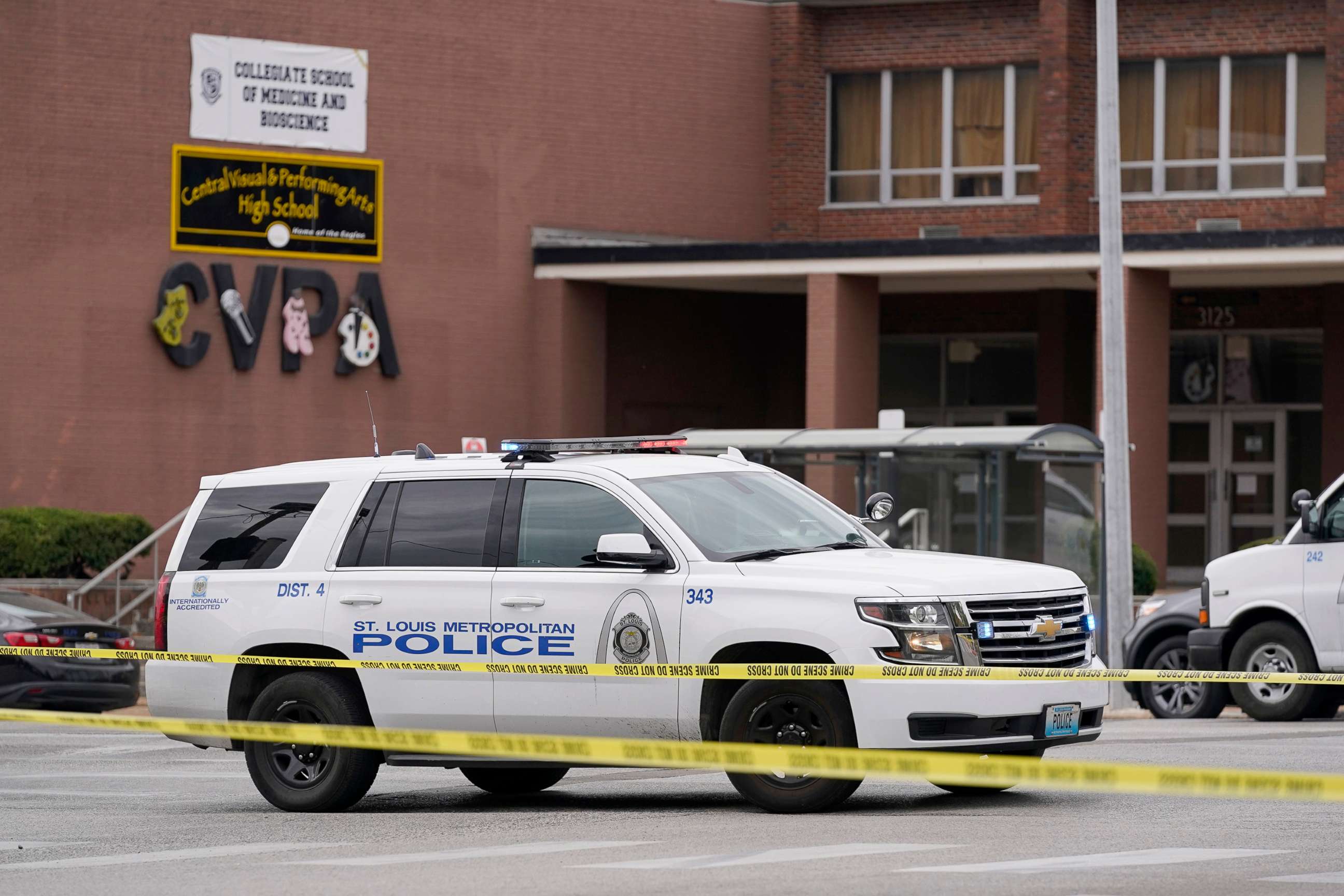A look at Missouri's gun laws in wake of St. Louis school shooting
Missouri does not require a background check to buy or own a gun.
A shooting at a St. Louis, Missouri, performing arts school on Monday that left two people dead and seven others injured has put a new focus on gun laws in the state.
The suspect, 19, who graduated from Central Visual and Performing Arts High School last year, was armed with an AR-15-style rifle and more than 600 rounds of ammunition, authorities said.
Jean Kuczka, 61, a beloved physical education teacher and cross-country coach, and sophomore Alexzandria Bell, 15, were killed in the shooting. According to St. Louis Police Commissioner Michael Sack, the suspect died during an exchange of gunfire with police.
"We must do more to keep guns out of the hands of violent criminals," Missouri state Sen. Karla May said in a statement following the shooting. "As we move forward, I am calling for a full investigation into how this shooter acquired his weapons and his ammunition."
What are Missouri's gun laws?
Missouri has some of the weakest gun laws in the country, according to the nonprofit anti-gun violence organization Everytown for Gun Safety.
Missouri does not require a background check to buy or own a gun, according to Everytown.
Anyone who is 19 and older can legally conceal and/or open carry a gun in Missouri without a permit, according to the law, and the state also recognizes concealed weapon permits issued by other states.
In 2021, Missouri Gov. Mike Parson signed the Second Amendment Preservation Act into law, which states "that all federal acts, laws, executive orders, administrative orders... and regulations, whether past, present or future that infringe on the people's right to keep and bear arms as guaranteed by the Second Amendment to the United States Constitution... of the Missouri Constitution must be invalid in this state."

Orlando Harris' family had removed the weapon used in the St. Louis school shooting from their home, but the suspect managed to gain access to the weapon again, authorities said on Wednesday.
On Oct. 15, police responded to a domestic disturbance at Harris' home because the "suspect's mother had located a firearm in the home and wanted it removed," St. Louis Sgt. Charles Wall said in an update Wednesday evening.
Police determined that Harris legally possessed the gun, and a "third party known to the family" took the gun, so it was no longer stored in the home, Wall said.
"While it is not yet clear when or how the suspect came to be in possession of the firearm after this incident, we can confirm that the firearm involved in this incident is the firearm used in the shooting Monday," Wall said. Authorities are investigating how the gun got back to Harris.
Does Missouri regulate ammunition?
The state bans people from knowingly possessing ammunition that "explodes or detonates upon impact because of an independent explosive charge after having been shot from a firearm," according to Missouri law.
But Missouri doesn't require a license to sell or buy ammunition, nor does it require sellers to maintain a record of who bought ammunition, according to the Giffords Law Center to Prevent Gun Violence.
Proponents of gun control say ammunition deserves stricter restrictions limiting the frequency and severity of mass shootings. In contrast, gun rights advocates argue that ammunition restrictions violate Second Amendment protections and unnecessarily duplicate the regulations in place for guns, experts said.
"There are fewer restrictions on ammunition sales than there are on firearm sales both at the federal level and in the vast majority of states," Jacob Charles, executive director of the Center for Firearms Law at Duke University School of Law, told ABC News in June.
ABC News' Emily Shapiro and Max Zahn contributed to this report.




